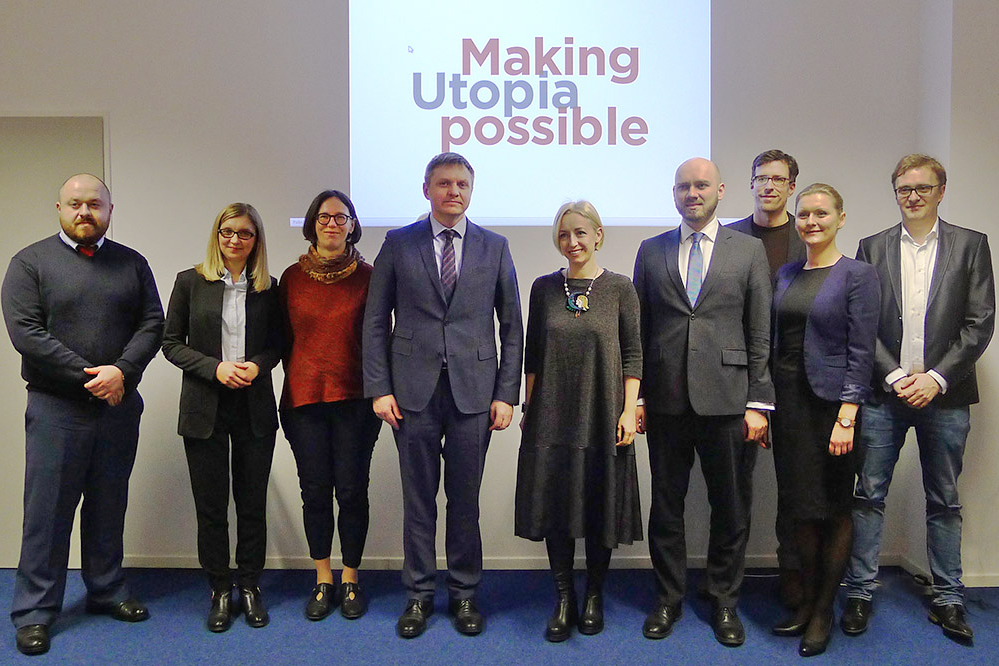Sharing Experience on the Implementation of Agenda-2030
Belarusian government delegation visits Berlin

Belarusian government delegation visits Berlin


A high-level delegation of three Belarusian deputy ministers from Belarus visited the Wuppertal Institute in Berlin at the end of January to exchange experiences on the implementation of the Agenda 2030 and its targets about sustainable development. The meeting, in which the Belarussian delegation, representatives of the United Nations Development Programme (UNDP) from Minsk, the Belarussian embassy in Berlin and the Deutsche Gesellschaft für Internationale Zusammenarbeit (GIZ) participated, had been organised by the IBB Internationale Bildungs- und Begegnungswerk Dortmund. The thematic focus was on sustainable development as a guiding principle of the Federal Government's policy and on the importance of the Sustainable Development Goals (SDGs) for the Federal Republic of Germany's national sustainability strategy. At the meeting, Dorothea Schostok and Dr. Daniel Vallentin (both Division Future Energy and Mobility Structures, Wuppertal Institute), as well as Dr. Henning Wilts (Research Unit Circular Economy, Wuppertal Institute) gave an insight into the projects for the development and implementation of sustainability strategies at the Wuppertal Institute and discussed approaches for a regional, structural change in Belarus. In particular, potential transformation and adaptation strategies have been intensified within the circular economy in order to create a bilateral transfer of knowledge, e.g. with regard to recycling technologies of plastic waste and the handling of the recycling of end-of-life vehicles.
Further programme topics of the visit included an exchange with the Federal Chancellery on the coordination of German sustainability policy, the German Council for Sustainable Development on the importance of peer reviews in sustainability policy, an exchange on the involvement of civil society with Germanwatch e. V. and on entrepreneurial initiatives for decarbonising the economy with the Foundation 2 Grad.
